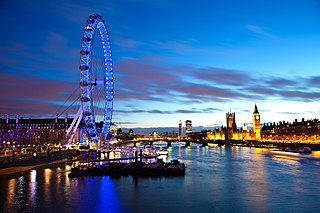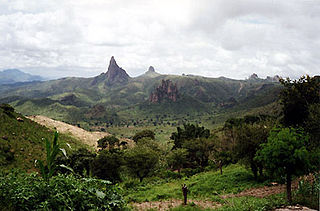External links
- Latourex website, in English
- Experimental tourism catches on
- Ideas to turn travel on its head
- Experimental Travel – Lonely Planet Online
- Sheffield Laboratory of Experimental Travel
- Joel Henry: Dean of “Experimental Travel”
Experimental tourism is an approach to tourism in which visitors do not visit the ordinary tourist attractions (or, at least not with the ordinary approach), but are guided by other means. It is an alternative form of tourism in which destinations are chosen not on their standard touristic merit but on the basis of an idea or experiment. It often involves elements of humor, serendipity, and chance.
There are a number of approaches to experimental tourism:
Other ideas do not have particular names:
The concept of experimental travel was developed by writer Joël Henry, the French director of the Laboratory of Experimental Tourism (Latourex).
In 2005, Lonely Planet published The Lonely Planet Guide to Experimental Travel, which formalised and developed many of Henry's ideas.

Tourism plays a significant part in the economic life of England. In 2018, the United Kingdom as a whole was the world's 10th most visited country for tourists, and 17 of the United Kingdom's 25 UNESCO World Heritage Sites fall within England.

A visitor center or centre, visitor information center, tourist information center, is a physical location that provides tourist information to visitors.

Ebisu (恵比寿) is major district of Shibuya-ku in Tokyo, Japan. It was developed on the site of a former brewery and is now home to Yebisu Garden Place. It is renowned for its high concentration of bars and restaurants.
The United Kingdom is the world's 10th biggest tourist destination, with over 37 million visiting in 2018. The tourism industry contributed a total of £213 billion to the GDP in 2017, which is expected to increase to £265 billion by 2028.

A guide book or travel guide is "a book of information about a place designed for the use of visitors or tourists". It will usually include information about sights, accommodation, restaurants, transportation, and activities. Maps of varying detail and historical and cultural information are often included. Different kinds of guide books exist, focusing on different aspects of travel, from adventure travel to relaxation, or aimed at travelers with different incomes, or focusing on sexual orientation or types of diet.
Joël Henry is a French journalist who was born in Strasbourg.
Montenegro is one of the fastest-growing tourist destinations. In 2007, over a million tourists visited Montenegro, making some 7.3 million overnight stays. This accounted for some 480 million euros in tourism revenue in 2007. In 2015, tourism realised over 1.7 million arrivals, with a further increase in 2016. In the same year, the coastal town of Kotor was named the best city to visit by Lonely Planet, whereas the country itself is continuously included in touristic top lists. With a total of 1.8 million visitors in 2016, the nation became the 36th most popular country to travel to in Europe. Montenegro was further visited by over 2 million tourists in 2017. The Government aims to attract greenfield investments, which should make best use of undeveloped parts of the coast, such as Jaz Beach, Velika Plaža, Ada Bojana and Buljarica.

Tourism in Portugal serves millions of international and domestic tourists. Tourists visit to see cities, historic landmarks, enjoy beaches, or religious sites. In 2017, Portugal had 23 million visitors. The most popular destinations were Lisbon, Porto, Fátima, the Portuguese Riviera and the Algarve. The most popular with internationals were Lisbon, the Algarve and Northern Portugal. National tourists prefer Northern Portugal, followed by Central Portugal and the Algarve.

Rhumsiki, also spelt Rumsiki and Roumsiki, is a village in the Far North Province of Cameroon.
Tourism in Greenland is a relatively young business area of the country. Since the foundation of the national tourist council, Greenland Tourism, in 1992, the Home Rule Government has been working actively with promoting the destination and helping smaller tourist providers establish their services. Foreign travel agencies have increasingly been opening up sale of Greenland trips and tours, and the cruise industry has had a relatively large increase in routes to Greenland since about the turn of the century.
Tourism in Benin is a small industry. In 1996, Benin had approximately 150,000 tourists. By 2014 number rose to 242,000. A small country with a high concentration of tourist attractions, Benin's national parks and culture are among its main tourist attractions. Abomey is one of Benin's main tourist attractions, with palaces that became a World Heritage Site in 1982. The capital city Porto Novo's attractions include its museums and architecture.

Leeds in West Yorkshire, England is a tourist destination.

There is a long history of tourism in Hungary, and Hungary was the world's thirteenth most visited tourist destination country in 2002. Tourism increased by nearly 7 percent between 2004 and 2005. European visitors comprise more than 98 per cent of Hungary's tourists. Austria, Germany, and Slovakia make the largest numbers of visitors to the country. Most tourists arrive by car and stay for a short period of time. Hungary's tourist season is from April through October. July and August are the best tourist months. Budapest is the country's most popular tourist destination.

Tourism in Uganda is focused on Uganda's landscape and wildlife. It is a major driver of employment, investment and foreign exchange, contributing 4.9 trillion Ugandan shillings to Uganda's GDP in the financial year 2012-13.

Tourism is an important part of the economy of Réunion, an island and French overseas departement in the Indian Ocean. Despite its many tourism assets, the island's tourist attractions are not well known.

Tourism in Georgia is an increasingly important component of the country's economy. In 2015 it employed around 158,500 people, producing 6.7% of Georgia's GDP and providing US$1.94 billion of revenue. In 2019, the number of international arrivals reached a record high of 9.3 million people with foreign exchange income in the year's first three quarters amounting to over US$3 billion. The country plans to host 11 million tourists by 2025 with annual revenues reaching US$6.6 billion.
Tourism Radio is a travel technology company based in Cape Town, South Africa, which produces location-based technology used in customized GPS in-car devices and IOS and Android mobile applications. The technology allows the user to take a tour of a city or pre-defined area, with geo-located, pre-recorded audio travel information triggering automatically as the user approaches them. The Tourism Radio in-car device plugs into a standard vehicle cigarette lighter and broadcasts a selection of local and international music along with location-specific travel information about the area the vehicle is driving through. Currently, there are approximately 3,300 of these devices used in South Africa, Namibia, New Zealand and Angola. Distribution of the devices to tourists is done in partnership with local Destination Marketing Organisations (DMOs) and car/motorhome rental agencies. The iOS and Android applications do not broadcast a selection of music, but use the same geo-location principle to give the user relevant travel information about the area they are in. This includes information about a general area or suburb, as well as information about specific points of interest, such as museums, art galleries, historical attractions, restaurants, nature walks, beaches, etc.

Dracula tourism is a type of cultural tourism involving travel to sites associated with Dracula and his real or imaginary travels. There is Dracula Tourism in Transylvania, Romania and in the United Kingdom.
A blind tour is a contemporary concept in tourism. A form of experimental travel, it is a guided tour in which the tourist is blindfolded for the entire duration of the tour while being talked through the visited areas, as opposed to traditional sightseeing. A blind tour is a very different experience owing to the absence of one vital sense, sight, thereby stimulating the other relevant senses, namely hearing, feel and smell. The concept has been related to that of the "dark restaurant", where there is no light for diners to see what they eat.

Kazakhstan is the ninth-largest country by area and the largest landlocked country. Today, tourism is not a major component of the economy. As of 2014, tourism has accounted for 0.3% of Kazakhstan's GDP, but the government has plans to increase it to 3% by 2020. The country inherited the culture of the ancient Silk Road, Nomadic lifestyle and Soviet Union which had a great influence on its formation. This mixture makes Kazakhstan so different from any other country in the region and in the world.